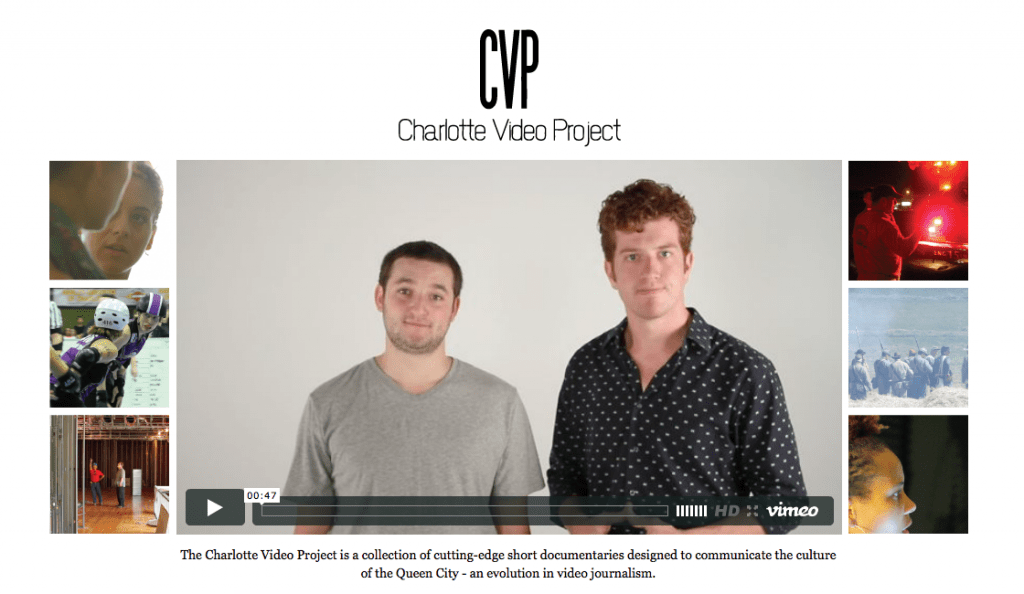
Charlotte Video Project documents the Queen City’s culture
Every city has its things, people and places that are unique to that area. Charlotte’s stories — its culture — are scattered throughout our many diverse neighborhoods.
Twenty twelve is a big year for the Queen City. In early September, Charlotte will host the Democratic National Convention, which puts us in the national — and really international — spotlight. This is where Bread & Butter Pictures and the “Charlotte Video Project” comes in. It is spending the time leading up to the convention creating numerous documentary “shorts,” stories about our city.
The documentaries for the Charlotte Video Project employ a fly-on-the-wall style of filmmaking, otherwise known as direct cinema — a voyeuristic technique that places the viewer directly in the action. With all of Bread & Butter Pictures’ documentaries, it tries to tell the stories as visually as possible, so the viewer engages more with the images than the words for a greater cinematic experience. It believes the term “documentary” is relative, so there are many techniques and approaches it can take to entertain an audience.
There may be lots of videographers, filmmakers and photographers out there, but the reason Bread & Butter Pictures’ clients choose it is because it provide original works of art that stand out amongst its competitors. Follow it as it leads us through and around what makes Charlotte, N.C. so special.
The “Wilson Brothers” documentary (seen above) is a great example of its artistic video style. It puts the viewer right into the action. It highlights some very personable, quirky and unique Charlotteans and their passions. Finally, the video is visually exciting and leaves you wanting to see more.
Kevin Beaty and Scott Lazes are Bread & Butter Pictures. Both have extensive photography and videography experience. Beaty is a photographer who, in addition to shooting stills, is continually studying and perusing endeavors in filmmaking, video engineering and graphic design.
In addition to Scott Lazes’ formal education in the Journalism & Media Studies and Cinema Studies programs at Rutgers, he had an apprenticeship under veteran documentary film editor and Rutgers instructor Dena Seidel. He produced experimental video art films and comedy sketches that have screened at film festivals around the world. And while Lazes’ background and training is in documentary film, he likes to challenge himself with a variety of genres, hoping to gain a greater control of the moving image at large.
The “Charlotte Video Project” is a collection of cutting-edge short documentaries designed to communicate the culture of the Queen City.
Recent Content
-
Artsarticle ·
-
Artsarticle ·
-
Artsarticle ·

